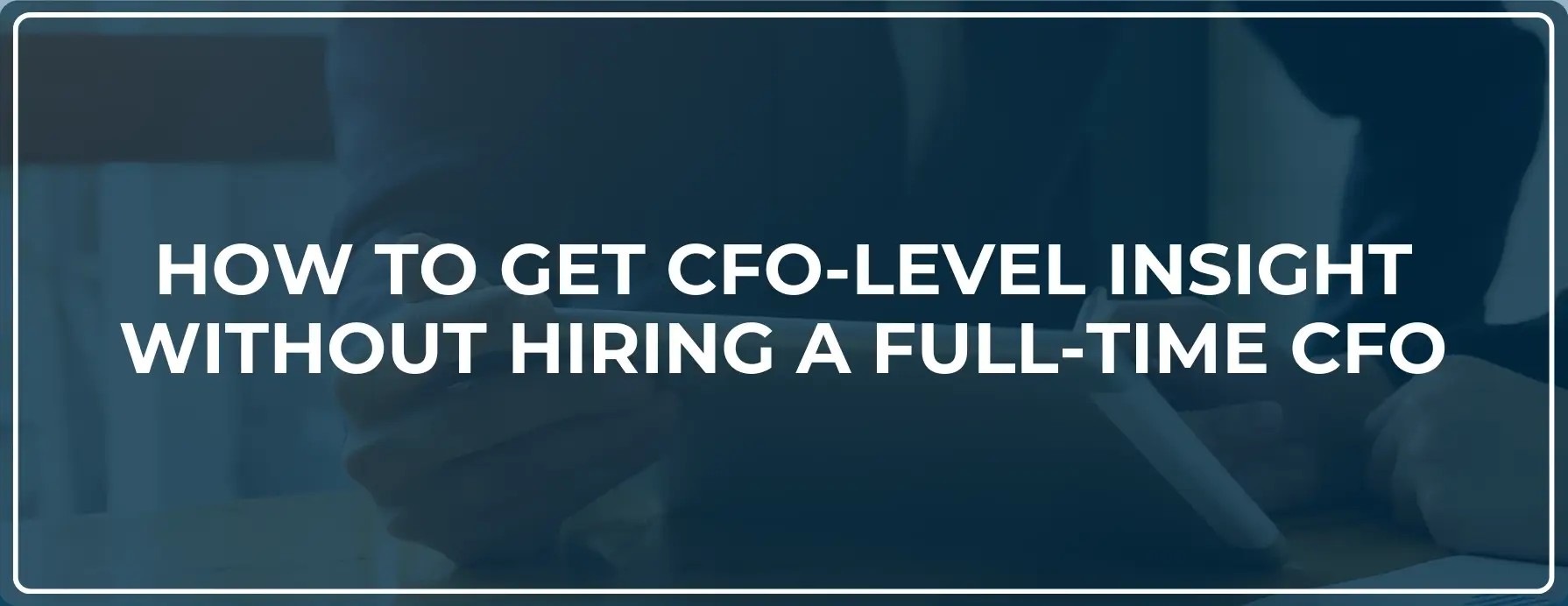
If you don’t have a CFO, you don’t need to settle for making big financial decisions alone. Partnering with a strategic business advisor gives you the forward-looking insight you’d expect from a CFO, but with a broader, more integrated focus on your tax position, operational efficiency, and long-term business value.
Your business is your most important investment. Without proactive guidance, you risk making decisions based on outdated reports rather than real opportunities. A strategic business advisor looks at your entire financial ecosystem — not just the P&L — to anticipate issues, uncover growth opportunities, and protect your profitability. This approach positions your business for sustained value, not just short-term wins.
(Fictional illustration — for example purposes only)
Illustration: "Janet," Owner of a $2.5M Veterinary Practice
Janet was running a thriving veterinary practice but had no CFO. She was making decisions based on cash in the bank rather than a true financial plan.
In this situation, BAAP would advise her to:
Following this type of approach, within 18 months, Janet could have stronger cash reserves, improved staff retention, and a clear path to expanding into a second location — all while making decisions with confidence rather than reacting to the bank balance.
At BAAP, we act as a board-level advisor, not just an accountant.
Here’s why our approach works:
Over a decade of forward-looking advisory services using the Practice Forward model
We help you make confident, informed decisions that grow the value of your business.
You don’t need a full-time CFO to think and act like one.
Get proactive about your business now – Schedule your Advisory Fit Meeting.
Yes. A strategic business advisor can provide CFO-level insight by integrating tax strategies, operational planning, and financial forecasting—without the cost of a salaried executive.
A bookkeeper records transactions. A strategic business advisor looks ahead, offering proactive tax planning, growth strategies, and risk management to increase long-term business value.
Yes, entity changes are possible, but they have tax and legal implications. Your advisor can help you plan the timing for maximum benefit and minimal disruption.
BAAP delivers board-level financial guidance plus tax-smart planning and commercial banking insight, all for a fraction of the cost of a full-time CFO.
Quarterly meetings are ideal for reviewing KPIs, updating forecasts, and adjusting strategies before small issues become big problems.
Yes. Advisors with commercial banking expertise—like Business Advisory and Accounting Partners—can prepare your financial package and position you favorably with lenders.
Absolutely. Tax planning is core to integrated advisory services, ensuring every operational and financial decision is tax-efficient.
By tracking leading indicators, forecasting, and aligning decisions with your growth plan, advisors help prevent cash shortages and improve liquidity.
Yes. Advisors align tax strategy, operations, and financial reporting to maximize business value and readiness for an eventual sale or succession.
Yes. Smaller businesses often see the fastest gains because proactive planning can significantly improve profitability, stability, and long-term value.